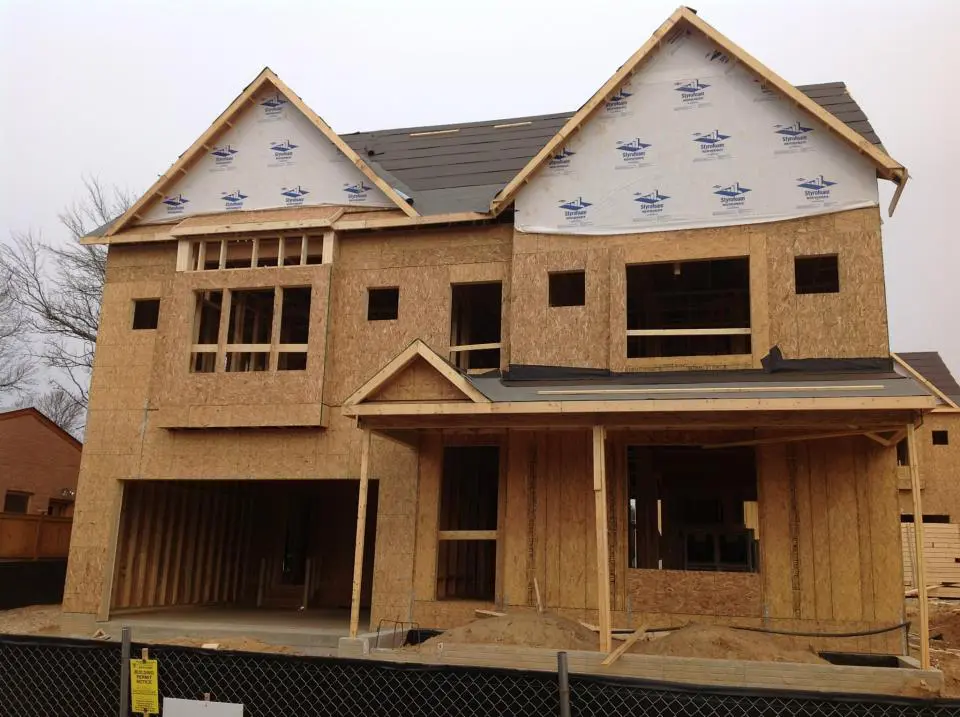Also published on the Huffington Post
“I want to build a house.”
Famous last words. But I hear it in D.C. because the supply of existing homes is so weak. Someone may pass a patch of vacant land on their way to work every day and wonder, “Could I build a house there?” Or they see a neighborhood being McMansioned, and they want in. Can’t blame them. New houses are, well, new.
I’ve helped clients attempt to locate lots on which to build a home, but it’s not a process for the faint of heart. Building a house can be a series of hurdles — many cost-prohibitive. If you plan to go this route, there are some basic things that you should understand so you can be better prepared for the road ahead.

Owners of Land are Usually Not Owners By Choice Land typically passes from generation to generation because land development is not easy. Grandpa owned some land, thought it was a good investment but didn’t have the resources to develop it, passed it to his kids, and they passed it to their kids. Now instead of dealing with one Grandpa, or five offspring of Grandpa, you are dealing with 22 heirs. Yes, 22 drooling heirs who see dollar signs and want their cut. I guarantee you — one of them will be a lawyer and another will be an HGTV junkie and this will skew all logic for pricing. I cannot say this enough, HGTV is NOT reality and lawyers who don’t specialize in land use aren’t real estate experts.
But the 22 heirs think this is easy and lucrative as their HGTV and lawyer cousins lead them astray. They read a couple news articles that say the market is strong. They see new, $700,000 homes selling across the street. The heirs will do some math and realize that $700,000 divided by 22 sounds decent, so the land is listed for sale at $600,000 with a false assumption someone can build a house for $100,000. They start counting (and sometimes spending) their profit. But, they forgot to calculate development costs and fees. Oops. Anyone who knows about land will bypass this overpriced parcel real fast. Sellers typically never counter your arguments with any logic. You have to prove to them that the cost to develop the land is x amount, and the cost to build is x amount and I also guarantee, they will accuse you of taking advantage of them. Call me when this happens, we’ll have a virtual clink of glasses and share a laugh.
The other problem with land pricing is that sellers love to work backward. They feel like if houses are selling for $700,000 today, by the time you finish building in two years, houses will be worth $850,000 (this logic is seriously flawed by the way) and so they back into a number. There is a ton of risk in land development. A market can turn south in a few months and if you essentially overpaid for the land because the seller priced it based on their made-up “expected” market climate in two years, you’ve given away your own equity while you held all the risk. Unlike a house, you can’t quickly list and sell a piece of partially developed land in a softening market because buyers would realize they may not be able to outpace the direction of the market and no price will be a good price. Because you will be holding the land through the market ups and downs, you should be compensated for that risk. Only pay a price that makes sense with today’s market conditions — not one for two to three years from now. Don’t let land sellers get into your pocket. Find sellers to work with who understand the business and are reasonable.
Find an Agent Who Knows Land This is so important. I have no idea how some listing agents get land listings. Oh wait, yes I do. They’re friends with someone in the family who asks “Hey can you list our property for sale?” Listing agents should know where all utilities are (at the road, at the site, or a mile away — because it’s costly to run utilities.) They should know what permits are in place. They should know if the land is in an environmental protection area which limits the ability for development. I’ve heard replies from “Power is right there” (right where? Even 20 feet can make a huge difference) to “Well they’re building houses across the street” to “What are you talking about” only to have the listing agent change their description on the listing within minutes to my exact words.
Every single piece of land is different. What matters is what entitlements your land has and what you can do with it, and your agent absolutely has to know this information or it could cause you to buy a piece of land that can’t be developed.
Now that you have some background, next week I will discuss Zoning, Feasibility and tearing down vs. building on a vacant lot.




